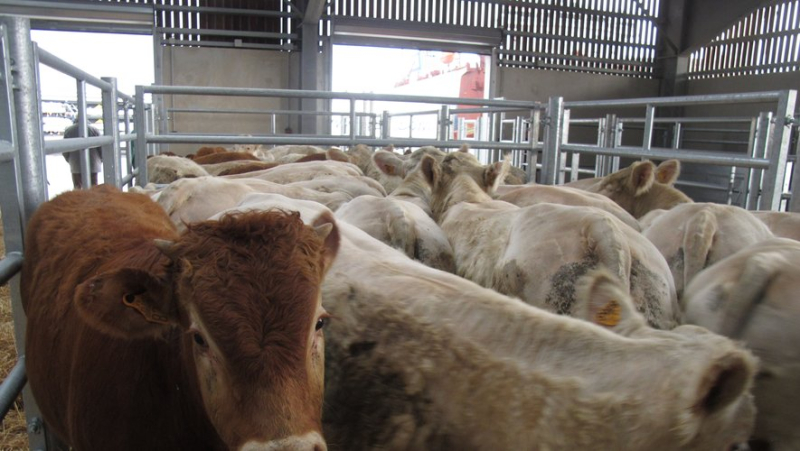From Sète, livestock exports have been at a standstill for six months

En temps normal 100 000 têtes environ passent chaque année par “la ferme” du port de Sète. Midi Libre – PHILIPPE MALRIC
Depuis l’arrivée de la fièvre hémorragique sur le cheptel français, plus aucune tête de bétail ne passe par Sète depuis six mois en direction de l’Algérie, le principal client.
The members of the Animalist Party demonstrating regularly on weekends in front of the entrance to the commercial port of Sète to denounce the maritime transport of livestock are, in fact, demonstrating in a vacuum. It has now been six months since livestock traffic between the port of the Singular Island – leading European port in this sector of activity – and Algeria – the main customer – is completely at a standstill.
We live on the cash
"We have had nothing since September", comments Laurent Trémoulet, the boss of Sepab ( Stockyard operating company), which manages the giant farm located at the port where the cattle recover from their journey on the road before boarding the cargo ships. & ;quot;We have a little activity towards Morocco, he specifies, but this has no connection with Algeria which represents 90% of exports". Or around 100,000 heads per year. Morality, society – the only global animal reception center controlled and validated by the Bureau Veritas Group in compliance with the requirements of the ISO34700 standard relating to the management of animal welfare – had to part with more than 40% of its workforce to save the furniture. "We live on the treasury", slips the manager.
No more livestock export agreement between France and Algeria
This crisis, which is bringing down an entire sector since the export of livestock generates liquidity for farms and also raises the price of cattle in slaughterhouses, is due to the arrival, since September, on the national territory of epizootic hemorrhagic disease (EHD) which affects livestock. This disease causes fevers, respiratory discomfort and weakens animals. Please note that cattle cannot contaminate each other and that this MHE is not transmissible to humans. But its presence requires the veterinary services of each country to agree on the content of the health certificate… which has still not been done between France and Algeria. "It’s political, regrets Laurent Trémoulet . Recently, we were told that we had to wait until the end of Ramadan. But it turns out that neither country wants to take the first step in this matter."
Mystery surrounding the government's emergency fund
And for the port farm, it’s a double punishment. Indeed, just before the Agricultural Show, in the situation of agricultural crisis that we know, the government had announced the creation of an emergency fund of 50 million euros for breeders and businesses. "The problem is that today still the DGPE (general directorate for the economic and environmental performance of companies which depends on the Ministry of Agriculture and Food Sovereignty, Editor's note) does not have the slightest idea of the documents that must be provided to benefit from these subsidies" ;, reports the boss of Sepab of the port of Sète who, although supported by the region and the prefecture of Hérault, still does not intend to bellow in his campaign.
I subscribe to read more




